Sole vs. Soul
Working predominantly in the romance genre, I tend to see the same mistakes often. Today is an example of a common mistake. While an argument may be made that both words will work when speaking of that one true love, soul mate is the correct choice. Here is a breakdown of each word.
Sole may be used as an adjective, noun or verb. As an adjective sole means only or single. As a noun it can be an edible type of fish or the underside of a shoe or human foot. As a verb it can be used when applying a new underside to a shoe.
Soul refers to the spiritual nature of a person or the spirit of a dead human being which has separated from the physical body.
And because you know I love visuals…
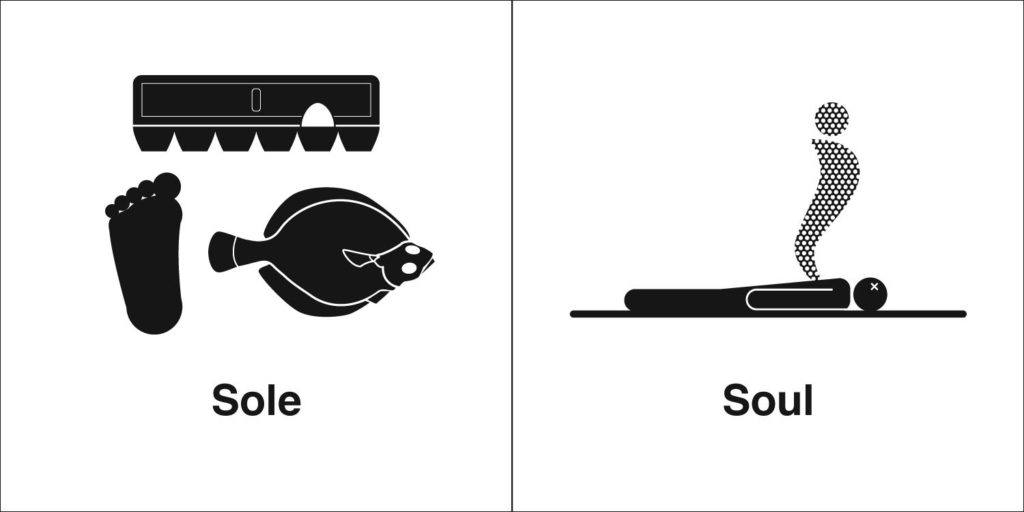
Stationery vs. Stationary
I try to make my job as an editor a family affair. My kids love to hear about the stories I’m working on and offer suggestions for things to add to my website. Today was no exception. When I asked my 10 year old what homophone I should use as today’s Tuesday Tip she immediately had an answer for me. I’m not sure if this is a word pair she often confuses, if they just discussed the pair at school or if this was simply the first option that came to mind. But, today’s Tuesday Tip is Stationery vs. Stationary.
Stationery is paper used for writing letters and oftentimes comes with matching envelopes.
Stationary means to stand still.
It’s fairly straightforward but easily confused. Here’s a graphic that should help as well.
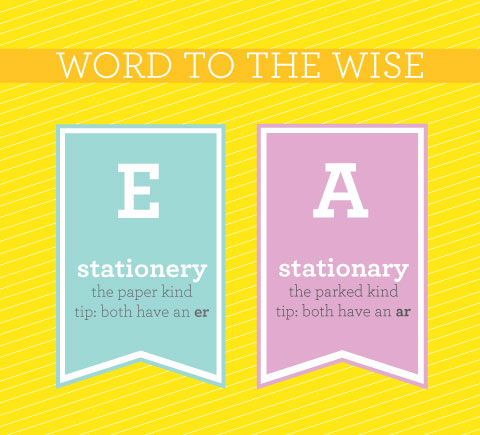
Peak vs. Peek vs. Pique
The tip this week was suggested by some reader friends. I’m always on the lookout for misused words and a great group of friends gave me a list. I might have Tuesday Tip suggestions for the rest of the year.
A peak means a maximum, to achieve a maximum, or to bring to a maximum.
A peek, means to glance quickly, or to look furtively.
Pique means to provoke or arouse, or to provoke resentment or indignation. It can also be a noun when referring to a feeling of resentment or indignation resulting from wounded pride.
Here’s a visual for a quick reference.

Sit vs. Set
Earlier I posted a Tuesday Tip comparing Lay vs. Lie. I keep that handy graphic on my desktop so I can refer to it, and I refer to it often. Today’s tip is another common mistake I see all the time. Thanks to The Notebooking Fairy for the great illustration and easy explanation to differentiate between the two.
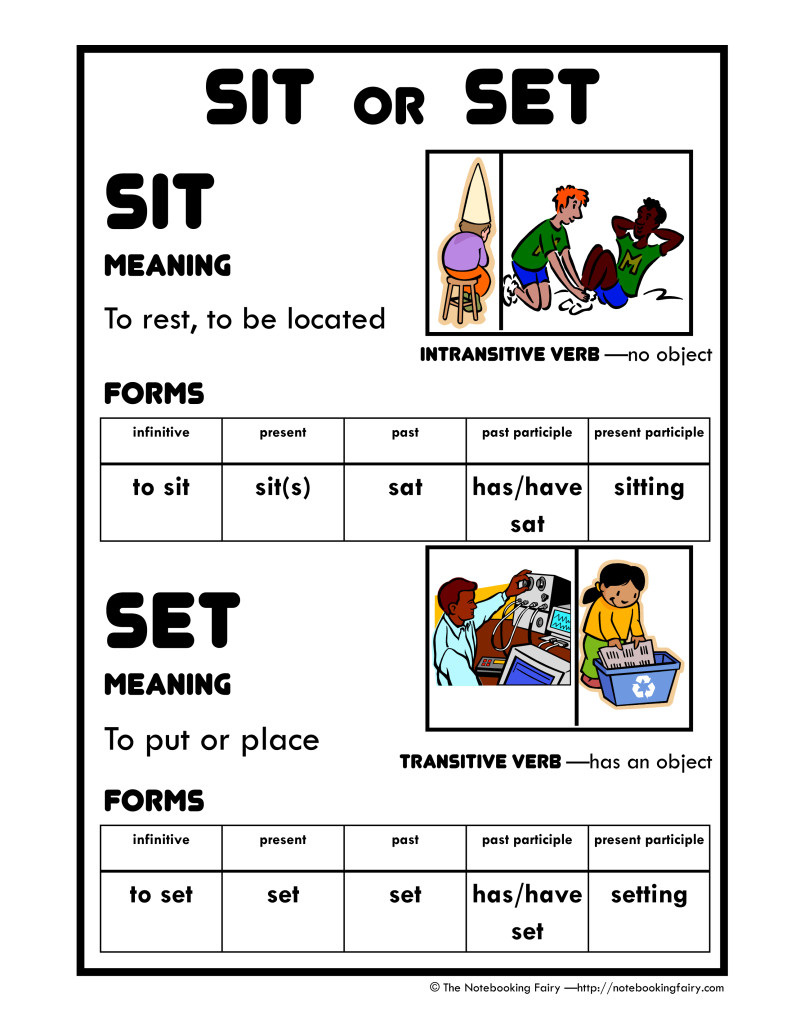
Whether vs. Weather
Last night I read a Facebook post written by a neighbor’s son. He recently spent a few years abroad speaking a foreign language exclusively and is now back home in the States. His post was political and religious in nature and well thought out for a 20-year-old young man. I’ve known him for years and was impressed with his thoughts. What made me laugh and shake my head was the first comment left for this young man. “Whether honey… not weather (sorry, can’t help but be a mom)” And to top it off, the comment wasn’t left by his mother. It got me thinking about how often I correct my own kids regarding their word usage. Is it a “mom” thing, a “teaching” thing or just a “grammar” thing? I’m not sure which but I’m hoping it’s a little bit of all three.
Regardless, today’s Tuesday Tip is in thanks to my neighbor’s Facebook post.
Use whether as a conjunction to introduce choices: Please tell us whether you would prefer steak or salmon for dinner.
Use weather when referring to the state of the atmosphere: The constantly changing springtime weather is driving us crazy.
The Parts of Speech Poem
I know this poem will help me not only with my work, but with my kids’ homework! Hopefully it will help you also.

This is a VERY important post.
In recent weeks we’ve talked about the overuse of the words said and look. Now let’s talk about very.
This word does little to help your readers understand the depth of emotion you’re trying to display. Instead of very tired, use exhausted. Instead of very happy, use elated.
Here is a list of words to replace your “very + adjective” choices with a more appropriate option.
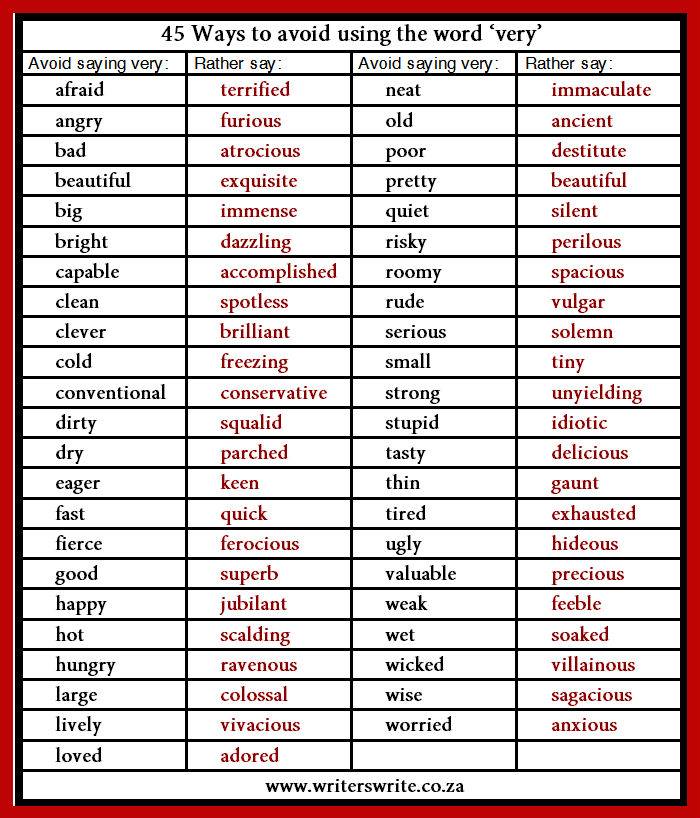
Its vs. It’s
I’ve been posting Tuesday Tips for more than two years. Of course, I’ve missed plenty of weeks in those two years. Looking back I’m shocked to discover I haven’t offered today’s Tuesday Tip before. It is one of the most misused and confused pair of words I find. And really, there is such a simple way to know which word to use in every situation. If you can substitute it is in the sentence, use it’s, if you can’t use its. Instead of offering definitions and examples, here is an easy visual to clear up the confusion. If it’s still too difficult to remember after seeing this, add the picture to your desktop so you can open it up and have a handy reminder right at your fingertips.
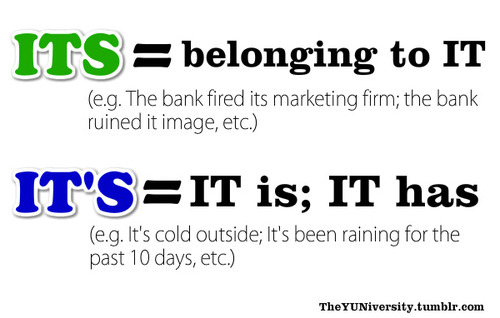
“Look” for a New Word
Each week my daughter has a writing assignment for her fifth grade English class. One of the requirements for the assignment is the use of “sparkle” words. These are words that are more colorful than the basic, boring alternative. Here is a list of “sparkle” words to exchange for the word look. I hope it helps.
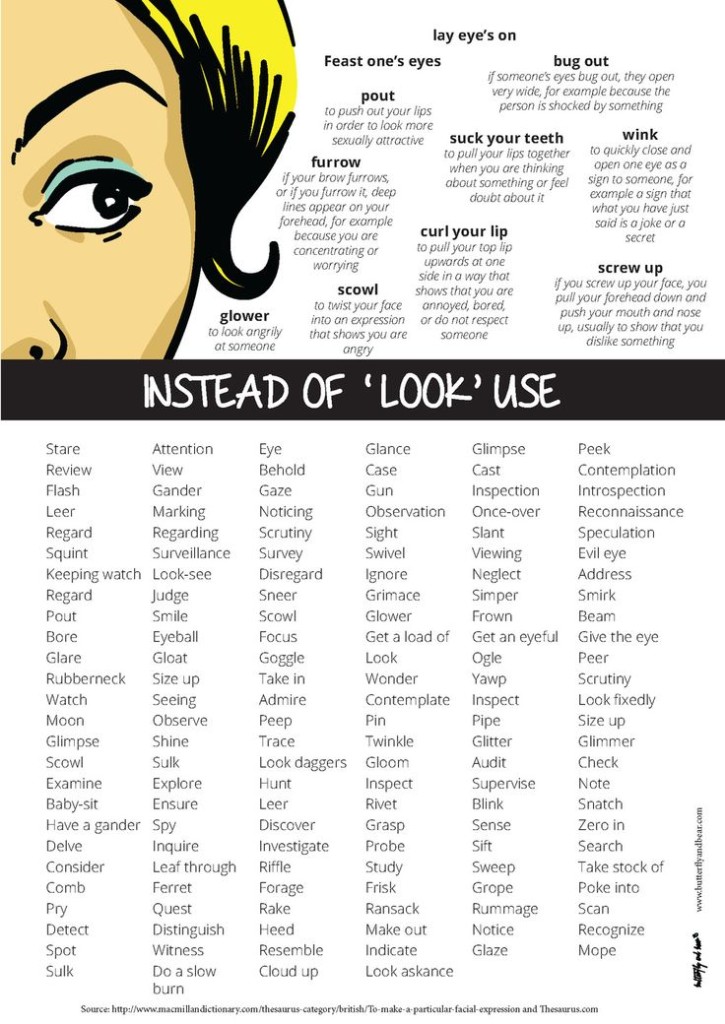
Said is Dead
Oftentimes I find myself reading the same words over and over. When reading dialogue that word is said. He said, she said, I said, whoever said. Everybody said. Today I say, “Said is dead.” Here is a list of words to use in place of said.
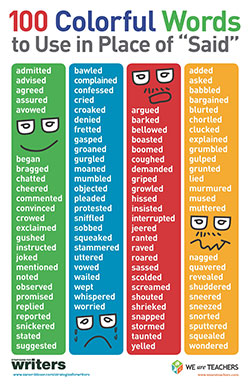
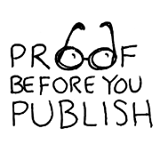
3324 E. Ray Road #41
Higley, AZ 85236
info@proofbeforeyoupublish.com
